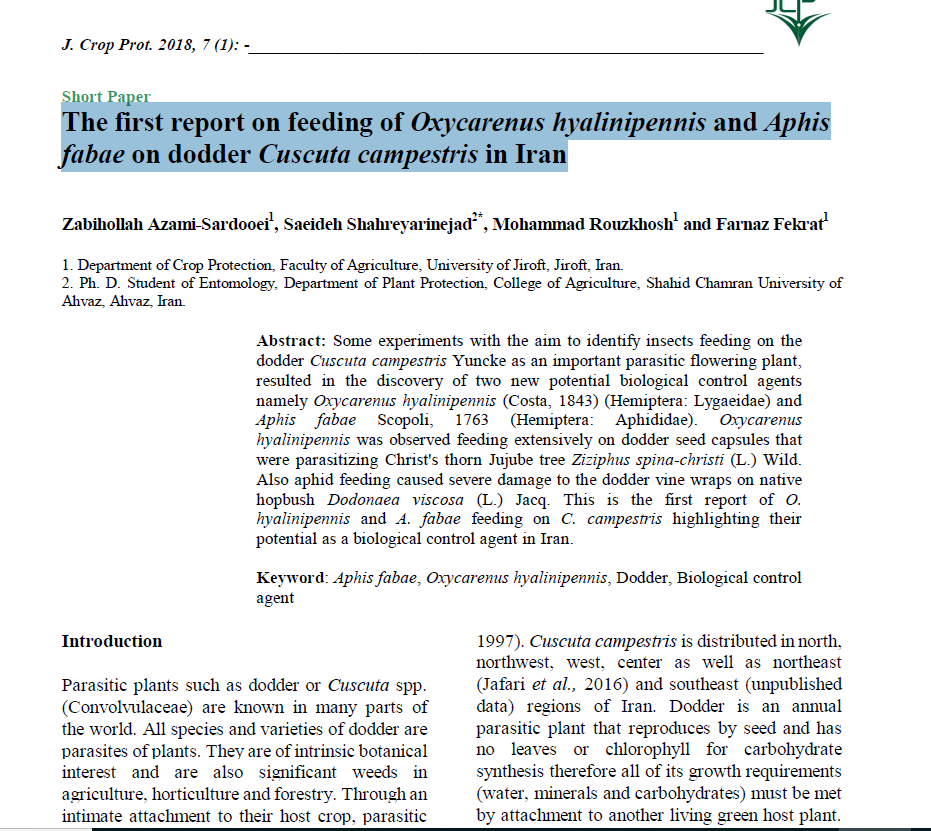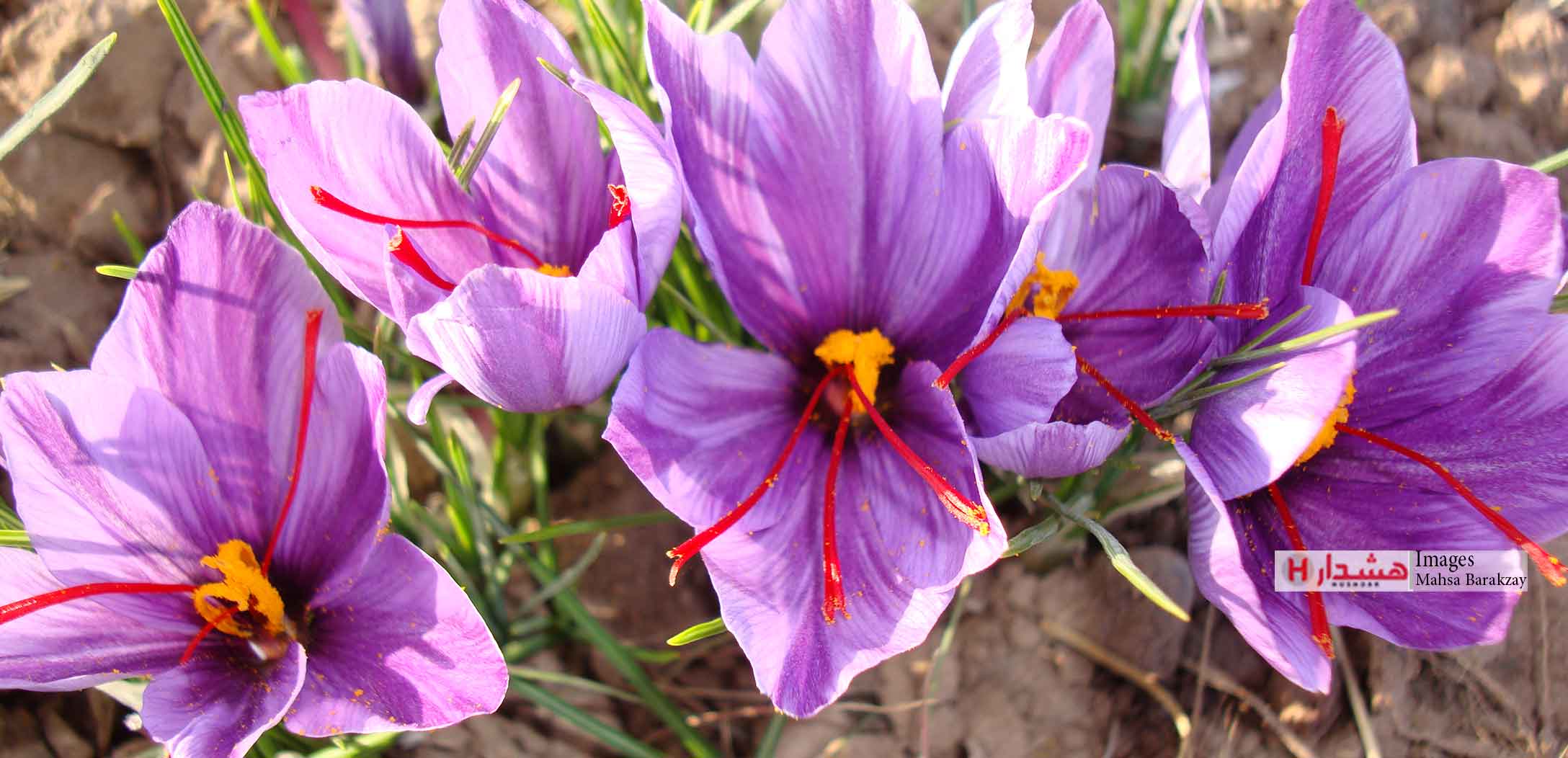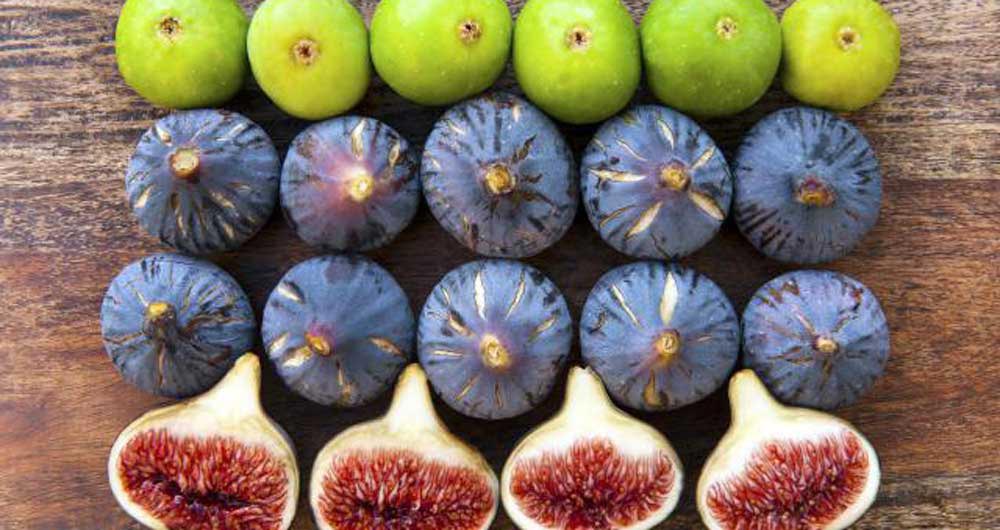
Abstract: Some experiments with the aimto identify insectsfeeding on the dodder Cuscuta campestris Yuncke as an important parasitic flowering plant, resulted in the discovery of two new potential biological control agents namely Oxycarenus hyalinipennis(Costa, 1843) (Hemiptera: Lygaeidae) and Aphis fabae Scopoli, 1763 (Hemiptera: Aphididae). Oxycarenus hyalinipennis was observed feeding extensively on dodder seed capsules that […]
Abstract: Some experiments with the aimto identify insectsfeeding on the dodder Cuscuta campestris Yuncke as an important parasitic flowering plant, resulted in the discovery of two new potential biological control agents namely Oxycarenus hyalinipennis(Costa, 1843) (Hemiptera: Lygaeidae) and Aphis fabae Scopoli, 1763 (Hemiptera: Aphididae). Oxycarenus hyalinipennis was observed feeding extensively on dodder seed capsules that were parasitizing Christ’s thorn Jujube tree Ziziphus spina-christi(L.) Wild. Also aphid feeding caused severe damage to the dodder vinewraps on native hopbush Dodonaea viscosa (L.) Jacq. This is the first report of O. hyalinipennis and A. fabae feeding on C. campestris highlighting their potential as a biological control agent in Iran.
دانلود فایل PDF
Download PDF file: The first report on feeding of Oxycarenus hyalinipennisand Aphis




نظرات